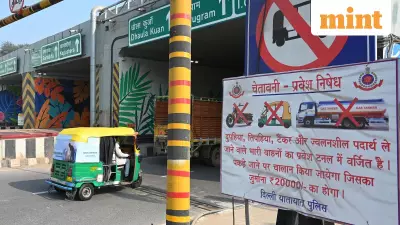
The Delhi High Court is currently examining a significant legal challenge that questions the very foundation of India's surrogacy regulations. A petitioner has approached the court contending that the current definition of infertility in the Surrogacy Act and the Assisted Reproductive Technology (Regulation) Act, 2021, needs broader interpretation beyond just primary infertility.
Understanding the Legal Challenge
The petition before the court argues that the existing legal framework takes an overly narrow view of infertility. According to the petitioner, the definition should not be restricted solely to primary infertility but should encompass various forms of infertility conditions that affect individuals and couples.
The case, heard on November 11, 2025, represents a crucial moment for reproductive rights in India. The petitioner's legal team emphasized that a restrictive interpretation of infertility could deny many deserving candidates the opportunity to pursue surrogacy as a means to build their families.
The Legislative Framework Under Scrutiny
The Surrogacy Act and the Assisted Reproductive Technology (Regulation) Act, both passed in 2021, were designed to regulate and monitor surrogacy practices across the country. These landmark legislations aimed to prevent commercial surrogacy while allowing altruistic surrogacy arrangements.
However, the current legal challenge highlights what many experts see as a critical gap in the legislation. The definition of infertility has become the central point of contention, with the petitioner arguing that the law fails to account for the complex medical realities of infertility.
Potential Implications of the Court's Decision
The outcome of this case could have far-reaching consequences for thousands of prospective parents across India. A decision in favor of the petitioner would mean:
- Expanded access to surrogacy for individuals facing various forms of infertility
- Broader interpretation of medical conditions qualifying for surrogacy
- Potential amendments to the existing surrogacy regulations
The court's final ruling could set a precedent for how reproductive laws are interpreted and implemented throughout the country. Medical professionals and legal experts are closely watching the proceedings, as the decision could reshape the landscape of assisted reproductive technologies in India.
As the case continues to unfold, it highlights the ongoing tension between legislative intent and medical reality in the evolving field of reproductive rights. The Delhi High Court's interpretation of the infertility definition will undoubtedly influence future cases and potentially lead to legislative reforms in this sensitive and deeply personal area of law.





